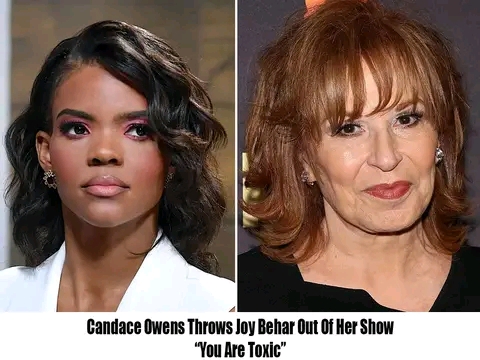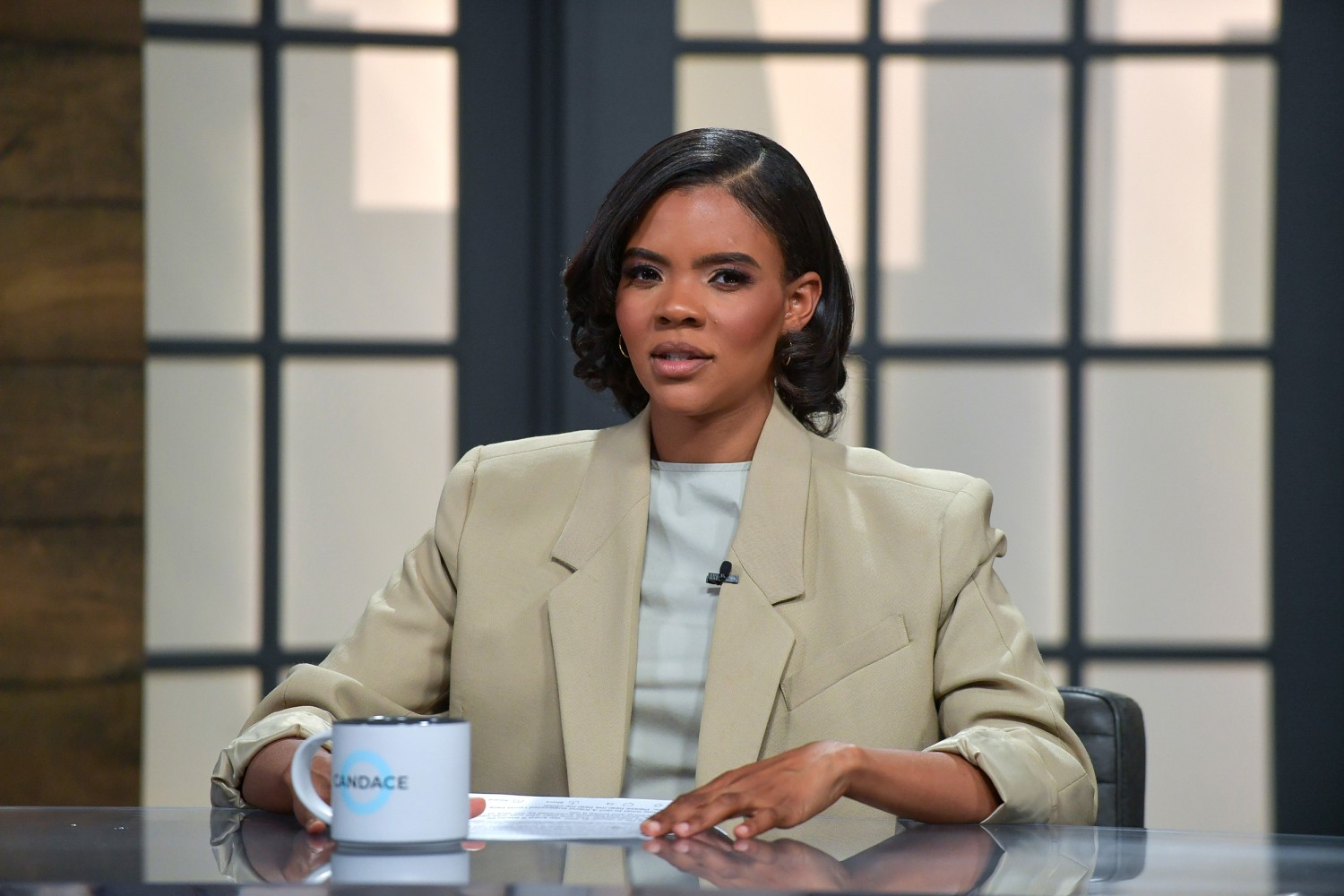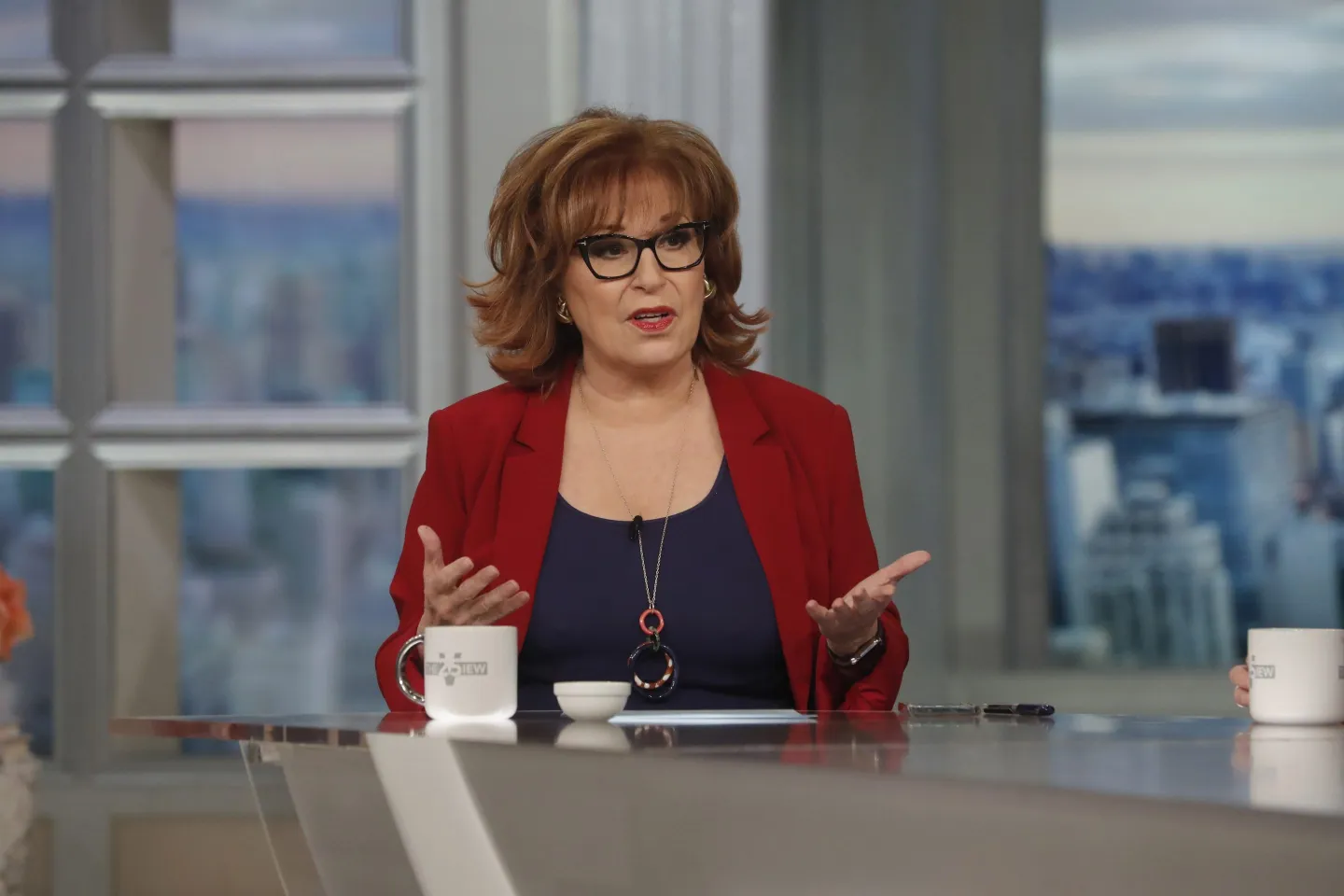BREAKING NEWS
Candace Owens Throws Joy Behar Out Of Her Show

In a recent heated episode that has captured national attention, conservative commentator Candace Owens ejected comedian and television host Joy Behar from her show, declaring, “You are toxic.” This dramatic confrontation has ignited widespread debate, highlighting the deep ideological divides in American media and politics.
The Confrontation
The incident occurred during a taping of Owens’ show, where Behar was a guest. What began as a spirited discussion quickly escalated into a contentious exchange. Owens and Behar, known for their polar opposite political views, clashed on a variety of topics including race, politics, and media representation. The conversation reached a boiling point when Behar made a series of remarks that Owens found offensive and inappropriate.
According to sources, Owens accused Behar of perpetuating divisive rhetoric and undermining civil discourse. She interrupted Behar mid-sentence and, with a pointed finger, demanded that she leave the set. “You are toxic,” Owens proclaimed, “and your presence here is an affront to the values we uphold on this show.” Behar, visibly taken aback, left the set amidst a flurry of heated words and palpable tension.
Public Reaction
The public’s reaction to the incident has been predictably polarized. Supporters of Candace Owens praised her for standing her ground and for her willingness to confront what they see as the harmful influence of mainstream liberal media figures like Behar. Social media buzzed with hashtags like #StandWithCandace and #NoToToxicity, with many expressing relief at seeing someone take a firm stance against Behar’s often controversial opinions.
Conversely, Behar’s supporters decried the incident as an example of intolerance and censorship. They argued that Owens’ actions were indicative of a growing trend among conservative figures to silence dissenting voices rather than engage in meaningful dialogue. Hashtags such as #StandWithJoy and #FreeSpeechForAll began trending, with many calling for more respectful and open discussions across the political spectrum.
Statements from Both Sides
Candace Owens addressed the incident in a statement on her social media platforms. She reiterated her position that Behar’s rhetoric was harmful and not conducive to the type of constructive conversation she aims to foster on her show. Owens emphasized the importance of maintaining a space where diverse opinions can be shared respectfully, without descending into what she described as “toxic mudslinging.”
Joy Behar, in her response, expressed disappointment over the incident. She defended her right to express her opinions and criticized Owens for what she saw as an overreaction. Behar also took the opportunity to call for greater tolerance and understanding between opposing viewpoints, suggesting that the real toxicity lies in the unwillingness to listen and engage.
Broader Implications
The clash between Owens and Behar is a microcosm of the broader cultural and political wars raging in the United States. It underscores the challenges of fostering genuine dialogue in an environment where ideological lines are sharply drawn and emotions run high. The incident also raises questions about the role of media figures in shaping public discourse and the responsibilities they bear in promoting civil engagement.
This confrontation has prompted a renewed discussion about the state of political discourse in America. It highlights the need for spaces where differing opinions can be exchanged constructively, without descending into personal attacks and hostility. As society grapples with deep-seated divisions, incidents like this serve as a reminder of the work that remains to be done in bridging gaps and finding common ground.
Conclusion
The altercation between Candace Owens and Joy Behar is more than just a sensational headline; it is a reflection of the current state of American political and cultural discourse. While the fallout from this incident continues to unfold, it serves as a stark reminder of the importance of respectful dialogue and the perils of allowing ideological differences to breed contempt and division.













